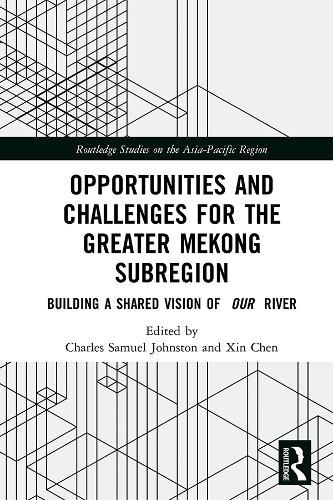Readings Newsletter
Become a Readings Member to make your shopping experience even easier.
Sign in or sign up for free!
You’re not far away from qualifying for FREE standard shipping within Australia
You’ve qualified for FREE standard shipping within Australia
The cart is loading…






The Mekong River is a vital and valuable resource, with huge development potential for the six states through which it flows. Given the significant asymmetry of power between those states, however, there is a real risk that some might utilise it to the detriment of others.
Without a sense of regional belonging, it is difficult to imagine that these states and their constituent communities will take regional imperatives to heart, participate in joint regulatory frameworks, or adopt behaviours for upstream-downstream and lateral cooperation over the appropriation and use of their shared resources. How effectively has closer interdependence of the Mekong countries accommodated the development of a political-social-cultural space conducive to the growth of a regional we-ness among not only political elites, but also the general public? The contributors to this volume approach this question from a range of directions, including the impacts of tourism, regional development programmes, the Mekong Power Grid, and Sino-US rivalry.
This edited volume presents valuable insights for scholars of international relations, Asian studies, development studies, environment studies, policy studies, and human geography.
$9.00 standard shipping within Australia
FREE standard shipping within Australia for orders over $100.00
Express & International shipping calculated at checkout
The Mekong River is a vital and valuable resource, with huge development potential for the six states through which it flows. Given the significant asymmetry of power between those states, however, there is a real risk that some might utilise it to the detriment of others.
Without a sense of regional belonging, it is difficult to imagine that these states and their constituent communities will take regional imperatives to heart, participate in joint regulatory frameworks, or adopt behaviours for upstream-downstream and lateral cooperation over the appropriation and use of their shared resources. How effectively has closer interdependence of the Mekong countries accommodated the development of a political-social-cultural space conducive to the growth of a regional we-ness among not only political elites, but also the general public? The contributors to this volume approach this question from a range of directions, including the impacts of tourism, regional development programmes, the Mekong Power Grid, and Sino-US rivalry.
This edited volume presents valuable insights for scholars of international relations, Asian studies, development studies, environment studies, policy studies, and human geography.